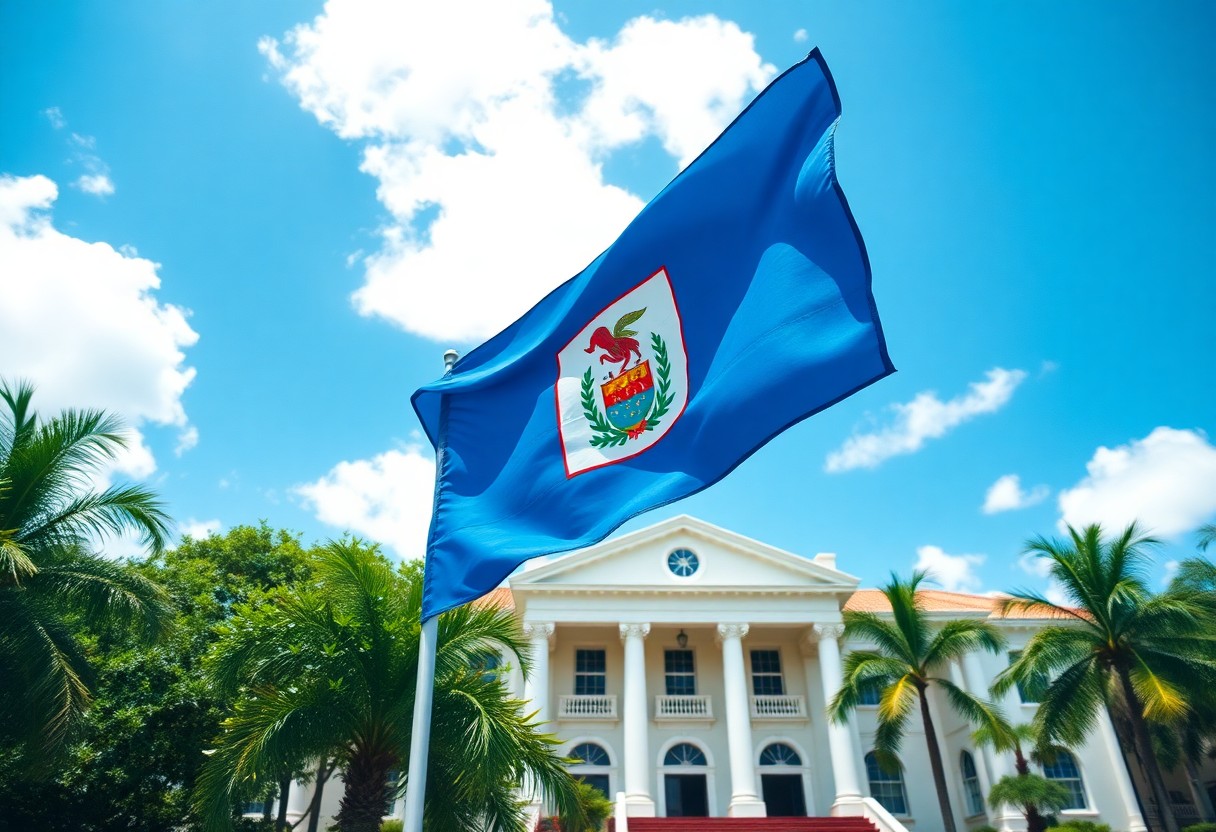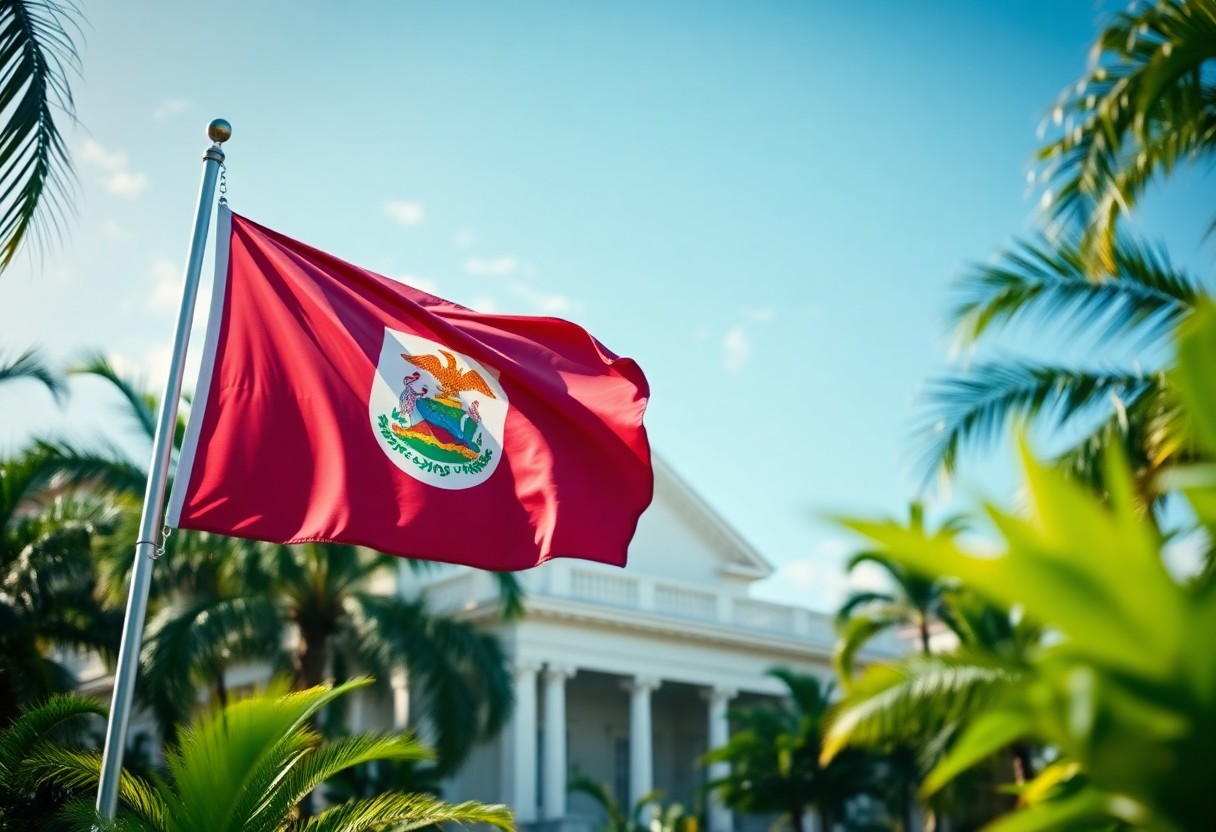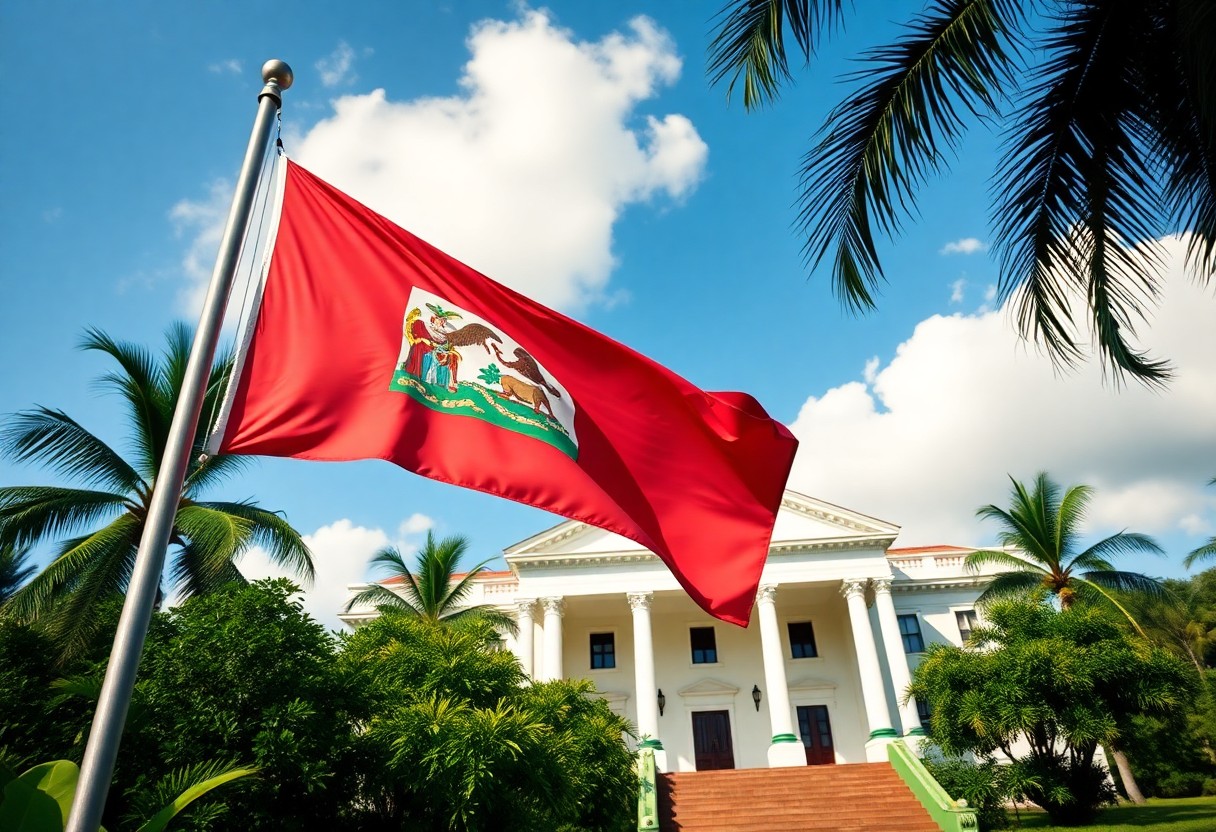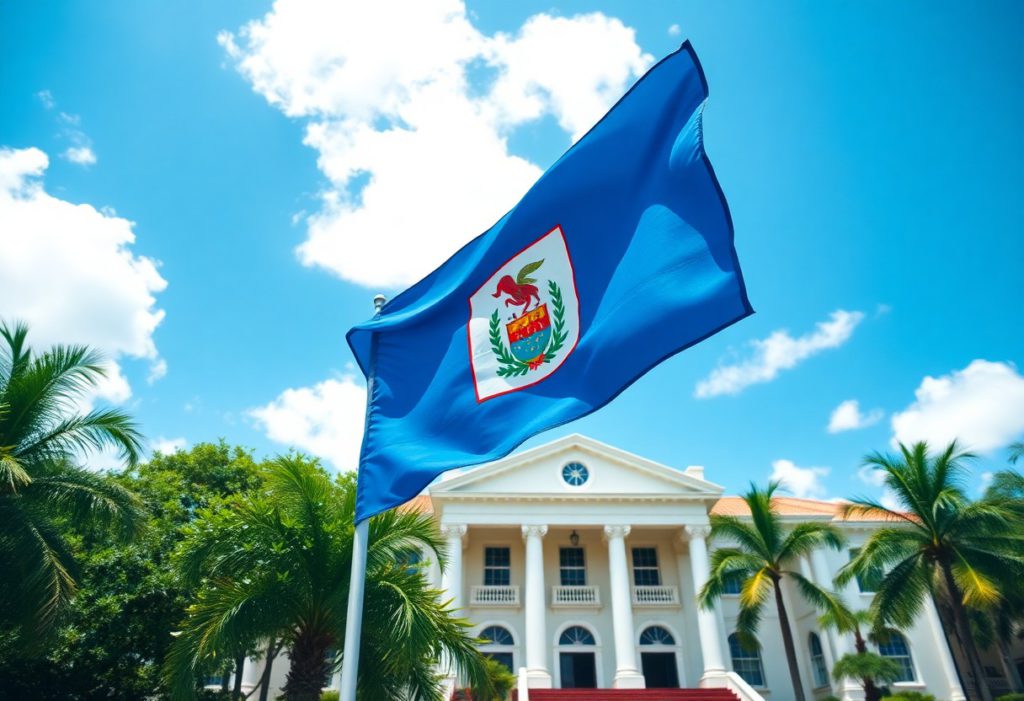Unraveling the Historical Journey to Belize's Independence is essential for understanding the core of Belizean identity and heritage. This article will explore the critical historical events that shaped the nation’s evolution into an independent state. It will shed light on the persistent struggles against colonial rule, significant treaties that were executed, and the momentous achievement of self-governance realised in 1981. These historical occurrences not only highlight the fortitude and resolve of the Belizean populace but also reveal the transformational shifts that laid the foundation for a democratic Belize. Join us as we navigate through the significant milestones that characterise Belize's national identity today.

Delving into the Vibrant Pre-Colonial History of Belize
Prior to the onset of European colonisation, the pre-colonial era in Belize was defined by a rich mosaic of diverse indigenous cultures and their profound histories. Various indigenous groups thrived in this region, with the Maya civilisation being the most significant. These societies developed complex social hierarchies, innovative agricultural practices, and extensive trade networks, which were remarkable for their time. The cultural heritage stemming from this period serves as a crucial cornerstone for Belize’s identity, significantly influencing the course of historical trajectories that unfolded thereafter.
Highlighting the Remarkable Achievements of Maya Civilisations
A thorough investigation of pre-colonial Belize must prominently feature the extraordinary accomplishments of the Maya civilisations. These ancient societies not only flourished but also achieved remarkable advancements in fields such as architecture, astronomy, and agriculture. Visitors and residents alike can explore breathtaking ruins such as Caracol and Lamanai, which stand as lasting testaments to the Maya's sophisticated lifestyles, showcasing their profound understanding of urban planning and natural sciences.
Embracing Belize’s Multifaceted Cultural Heritage
At the heart of Belize’s identity lies a deep and intricate cultural heritage. This rich tapestry is woven from the complex interplay of indigenous, African, and European influences that have shaped modern Belizean society. The diversity within this heritage is vividly reflected in the multitude of languages, traditions, and customs that enrich everyday life in Belize, contributing to a unique cultural landscape celebrated by its citizens.
Moreover, heritage plays a pivotal role in shaping Belize’s cultural identity. The architectural wonders of the Maya, along with their agricultural innovations, continue to resonate within contemporary society. Additionally, you will find that the <a href="https://xamanekbelize.com/belize-s-diverse-ethnic-heritage-and-society/">African and Creole</a> contributions have significantly enhanced Belize’s artistic expressions, musical traditions, and culinary arts. This captivating blend of cultures nurtures a robust sense of belonging and pride among Belizeans while serving as a reminder of the historical challenges faced by these diverse communities throughout Belize's rich history.
Examining the British Honduras Era and Its Impact
The era when Belize was referred to as British Honduras marks a significant chapter characterised by British colonial governance. Spanning from the 18th century well into the mid-20th century, this period witnessed the emergence of a distinct cultural identity profoundly shaped by British administration, economic activities, and local resistance movements. It was during this time that essential changes occurred within political and administrative frameworks, ultimately establishing the groundwork for Belize’s relentless quest for independence.
A Comprehensive Timeline of British Rule in Belize
After being officially designated a British colony in 1862, British Honduras experienced significant developments, including the introduction of the British legal system and the establishment of vital infrastructure. Over the years, the colony saw substantial resistance from the local populace, particularly evident during events such as the 1934 labour riots, which played a crucial role in galvanising support for self-governance among the Belizean people.
The Enduring Legacy of British Colonial Influence on Belize
Above all, the impact of British colonial rule has left an indelible mark on Belizean society and governance structures. The introduction of the English language, alongside legal frameworks and educational systems, played a vital role in modernising the nation. While this relationship presented various challenges, it also laid essential foundations for the democratic governance that Belize enjoys today.
Furthermore, the ramifications of British colonial rule are apparent in numerous aspects of Belize’s contemporary society. The English language remains the official language, facilitating communication both domestically and internationally. Additionally, the legal and governance frameworks established during colonial times set the stage for Belize's current legal system. Nevertheless, it is crucial to acknowledge that this influence was accompanied by the exploitation of resources and cultural imposition, which have had lasting effects on Belizean demographics and national identity. Understanding these multifaceted dynamics is essential for comprehending Belize’s complex journey towards independence.

Charting the Critical Path to Independence for Belize
Any discourse on Belize’s journey towards independence must acknowledge the significant events that paved the way for this historical transformation. The path to freedom involved responding to colonial pressures, fostering a growing sense of nationalism, and advocating for enhanced self-determination among the Belizean populace. The mid-20th century heralded a surge in political activism, which tirelessly laid the foundation for Belize’s ultimate liberation from British colonial rule.
Identifying the Key Historical Figures in Belize’s Independence Movement
Prominent historical milestones along Belize’s path to independence featured influential individuals such as George Cadle Price. Recognising their leadership and vision allows us to appreciate how these figures mobilised public support for self-governance, significantly shaping the future and identity of the nation.
Participating in Negotiations for Self-Governance
During the critical discussions for self-governance, representatives of the Belizean populace took centre stage, proposing transformative strategies that would alter the course of history.
With a proactive and determined approach, Belizean leaders actively engaged in discussions with British representatives regarding self-governance. These negotiations proved to be a pivotal turning point, as Belize sought to assert its autonomy in managing its own affairs. The formation of political parties and organised movements played an essential role in articulating the demands for change from the Belizean populace. As tensions escalated, the negotiations became increasingly intense, reflecting the urgency felt by Belizeans for autonomy. This critical period culminated in various constitutional amendments, setting the stage for Belize’s eventual independence from colonial oversight.
Noteworthy Milestones in Belize’s Path to Independence
A multitude of important milestones characterised Belize’s arduous journey to independence. From early legislative initiatives to pivotal events, each moment played a crucial role in the quest for self-determination. As you explore these milestones, you will come to appreciate their profound impact on the nation’s identity and the ongoing struggle for sovereignty.
Key Legislative Developments Leading to Self-Governance
One of the key early legislative developments was the introduction of the Internal Security Act in 1961. This act established a framework for self-governance, permitting a limited degree of autonomy in local governance matters. This crucial legislation marked a watershed moment, encouraging Belizeans to actively participate in political processes and advocate for further reforms.
Defining Events from 1964 to 1981 that Shaped Belize’s Political Landscape
In the years preceding Belize’s independence, significant events from 1964 to 1981 played a vital role in influencing the nation’s political landscape. These moments included the emergence of influential political leaders and nationalist movements, which laid the groundwork for achieving self-governance.
During this transformative period, numerous key events unfolded that contributed to Belize’s independence. The 1964 Elections ushered in a new era of political engagement by expanding voting rights to a broader segment of the Belizean population. The 1969 Belize-Guatemala tension further intensified calls for autonomy and unity among citizens. The 1973 Constitution established a more robust governance framework, granting additional rights and liberties to the populace. Ultimately, these developments, coupled with the declaration of independence in 1981, defined Belize’s trajectory toward establishing a national identity and self-rule.

Addressing Challenges and Developments in Post-Independence Belize
In the years following its independence in 1981, Belize encountered a series of challenges and opportunities in its quest to forge a cohesive national identity and effective governance. The nation undertook significant efforts to establish a stable political framework while promoting economic growth and addressing pressing social issues. Initiatives were directed towards enhancing infrastructure, education, and healthcare systems, all aimed at improving the quality of life for every Belizean in this young and evolving democracy.
Understanding the Political Framework of Belize
The political structure is fundamental in determining Belize's governance. You will discover that the country operates as a parliamentary democracy with a distinct separation of powers among the executive, legislative, and judicial branches. The Prime Minister leads the government, while the legislative body comprises the House of Representatives and the Senate. This political system encourages regular elections and representation of diverse political views, promoting active civic engagement among the populace.
The Significance of Commonwealth Membership for Belize
Upon gaining independence, Belize became a member of the Commonwealth of Nations, which has played a crucial role in fostering international relationships and support. This membership provides Belize with access to a network of countries that share similar democratic values, enabling participation in collaborative initiatives across sectors such as education and trade.
A significant advantage of Belize's Commonwealth membership is the opportunity to engage in dialogues regarding regional issues that impact the nation. Participation in this organisation enhances Belize’s global stature while also strengthening connections with other former British colonies. Additionally, you will find that Commonwealth nations often provide developmental assistance, which can be pivotal in addressing local challenges. However, this membership also entails a commitment to uphold democratic principles and human rights, ensuring that Belize continues to evolve as a respected member of the global community.
Confronting Contemporary Challenges Facing Belize
It is essential to acknowledge that Belize faces numerous contemporary challenges that significantly affect its stability and growth. These challenges encompass economic issues, social considerations, governance, and environmental factors that collectively shape the nation’s future trajectory. Addressing these pressing matters is vital for sustaining progress, as they directly impact the daily lives of Belizeans and the overall development of the country.
Investigating Economic Challenges in Modern Belize
Modern economic challenges in Belize include high unemployment rates and an excessive reliance on tourism as a primary economic driver. These factors contribute to economic instability and directly affect the livelihoods of local businesses. Fluctuations in global tourism trends can profoundly impact Belize’s economy, placing additional strain on government resources and public services.
Tackling Social Considerations in Belizean Society
In Belize, social issues such as poverty and inequality persist as significant challenges. Factors like limited access to education and healthcare services contribute to disparities among various communities, adversely affecting the overall quality of life for Belizeans.
Moreover, it is important to recognise that social challenges in Belize are intricately linked to prevailing economic conditions. The high rates of poverty directly affect access to essential services, and inequalities in education can hinder future opportunities for many. Nevertheless, community initiatives and government programmes are proactively addressing these concerns, fostering a sense of hope and resilience among the population. By strengthening social bonds and investing in education and healthcare, Belize can move closer to achieving a more equitable society for all its residents.
Reflecting on Belize’s Evolution Towards Independence
Reflecting on Belize’s journey to independence allows you to appreciate the significance of key historical milestones that shaped the nation. You can observe the ramifications of the 1964 and 1973 constitutional changes that laid the groundwork for self-governance. You also recognise the importance of the 1975 Treaty of Friendship with Guatemala in addressing longstanding territorial disputes. Ultimately, the official independence achieved on September 21, 1981, marked a transformative chapter in Belize’s history, allowing every Belizean to celebrate national identity and sovereignty. Each of these milestones played a crucial role in moulding Belize into the nation it is today.
Common Inquiries Regarding Belize’s Independence
What Key Historical Events Contributed to Belize Achieving Independence?
Belize's journey to independence was punctuated by a series of significant events. The movement for independence gained momentum in the 1940s, culminating in 1981 when Belize officially emerged free from British colonial rule. Critical milestones during this period included the establishment of a constitutional government in 1964 and the organisation of self-governing elections.
Who Were the Influential Figures in Belize’s Independence Movement?
A number of key figures played pivotal roles in the independence movement. George Price, the leader of the People’s United Party, was central to advocating for Belize's independence. Other notable individuals included Philip Goldson and various members of political organisations that actively campaigned for self-determination.
How Did the British Government Respond to Belize’s Independence Movement?
The British government initially resisted independence but eventually recognised Belize’s readiness for self-rule. This shift occurred as they observed the growing political awareness and activism among Belizeans. British officials collaborated with local leaders to facilitate a smooth transition towards independence.
The Article How Belize Gained Independence: Key Historical Milestones appeared first on Belize Travel Guide
The Article Belize Independence: Key Historical Milestones Explained Was Found On https://limitsofstrategy.com



The exploration of Belize’s independence journey is indeed a fascinating lens through which to view the country’s evolving identity. It’s crucial to recognise that understanding the struggles against colonial rule is just as important as celebrating the milestones of self-governance. Notably, the pre-colonial history you mentioned serves as a foundational backdrop, showcasing the resilience and adaptability of the various indigenous cultures that populated Belize long before colonial contact.
You highlight a key aspect of Belize’s narrative—the dual lens of struggle and celebration. The challenges faced during the colonial period are not just historical facts; they shape the current cultural tapestry of the nation. Recognizing the resilience of indigenous cultures is essential, as their influence persists in Belizean identity today.
Thank you for your thoughtful insights! To dive deeper into Belize’s rich history and celebrate its cultural heritage, I invite you to explore more in my latest article [here](#).
https://living-thrifty.com/PhotoLeap
Exploring Belize’s independence really opens up so many layers of our story. The struggle against colonialism is a deep well of resilience, and it shapes how we view ourselves today. Those pre-colonial histories you mention remind us that Belize isn’t just defined by what came after Europeans arrived. The diverse indigenous cultures here had their own rich traditions and governance long before the colonial narrative too over.
“I’m glad you found the exploration of Belize’s independence journey intriguing! If you’re interested in delving deeper into this rich history and the vibrant cultures that shaped Belize, check out this insightful resource.”
https://living-thrifty.com/FaceTune